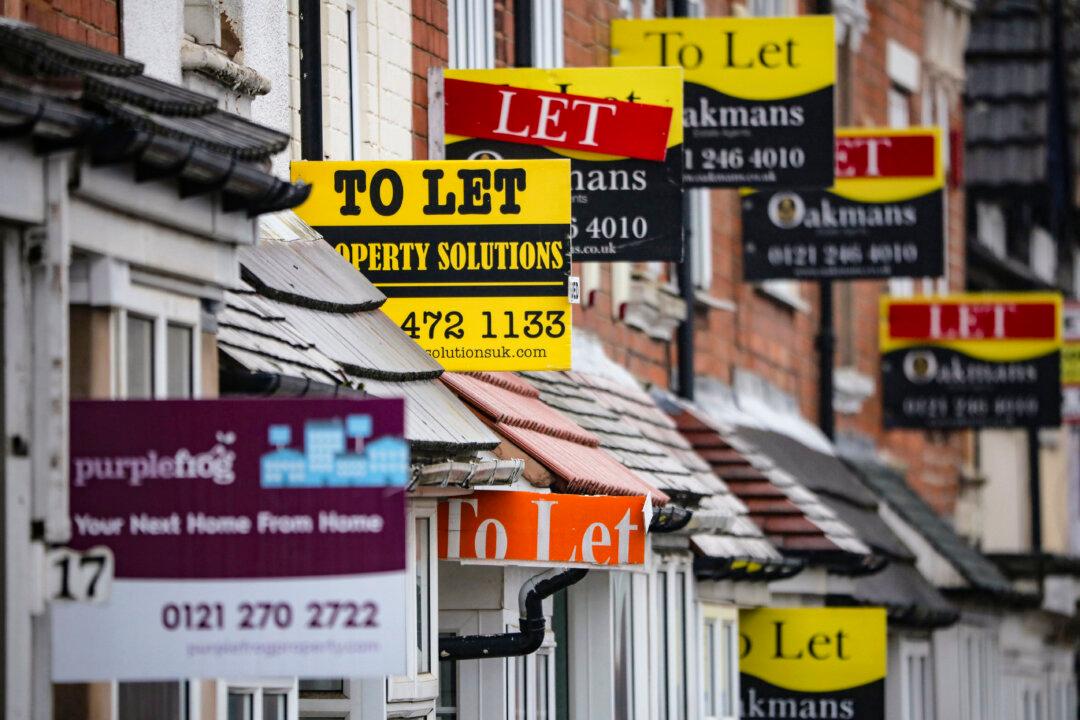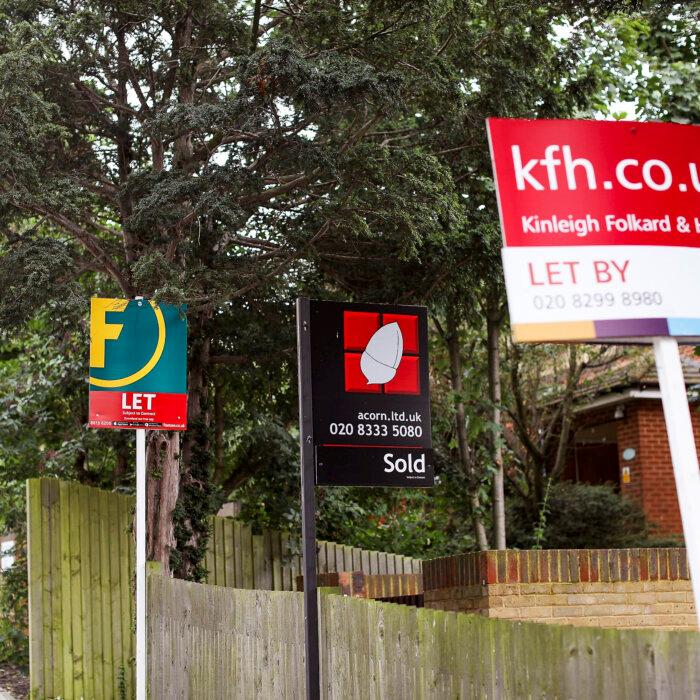Average monthly rents in the UK have reached record highs, according to Rightmove on Wednesday.
Outside London private rents hit £1,316, meaning that average advertised rents are around 7 percent higher than a year earlier, according to the property site’s analysis for the month of May.
In the capital, the average advertised rent is £2,652 per month, which is 4 percent higher than a year earlier, the website said.
Both those figures far outstrip the rate of inflation, which dropped to the government’s target of 2 percent in May.
The revelation prompted Rightmove to urge whoever forms the next government after Thursday’s election to ramp up housebuilding and incentivise landlords to invest in more homes for tenants.
Rightmove said this would “improve the supply and demand imbalance in the rental market and stabilise yearly rent growth.”
The property site said that the pace of growth in rental prices had eased from its peak of 12 percent two years ago, but remains significantly higher than the “more normal” level of around 2 percent per year, as was the norm before the COVID-19 lockdowns.
It added that an improvement in the balance between supply and demand in London has contributed to a slowing of rental price growth.
In contrast, Scotland is currently the hardest hit area when it comes to demand outstripping supply.
Rightmove property expert Tim Bannister said, “We’ve been talking about the imbalance between supply and demand in the rental market for a long time now, so it’s easy to forget that there was a time before the pandemic where rental price growth was more stable.”
Persuading Investors
Data from Propertymark, a professional body for estate and letting agents in the UK, revealed that around nine new applicants registered for each available UK property in May.It said that though most of its members reported that rents were rising or static, there was some good news for prospective tenants with 18 percent of firms reporting rents falling in May, compared to 12 percent in April.
Propertymark CEO Nathan Emerson said: “Propertymark has long argued that the private rental sector needs more houses to stabilise rental prices but there is a myriad of other factors that can contribute towards making the market more attractive for both investors and tenants.
“With a general election coming this week, Propertymark would like to see the next government reform the tax system so that more investors can be persuaded to invest in the private rental sector and lower rents for tenants in the long term.
“Whilst we support a greater supply of houses, there has to be a sensible deliverable programme mindful of protecting the green belt wherever possible.”
Data from Nationwide published on Monday shows that the average price of a home across Britain is up 1.5 percent from June last year, with an average cost of £266,054, just under eight times the average annual gross income of £34,963.
The index report pointed out that despite high interest rates, house prices in the UK are only 3 percent lower than the all-time price record set in the summer of 2022.
According to Propertymark, the average UK house price was £281,373 in April, around eight times the average annual gross income.







